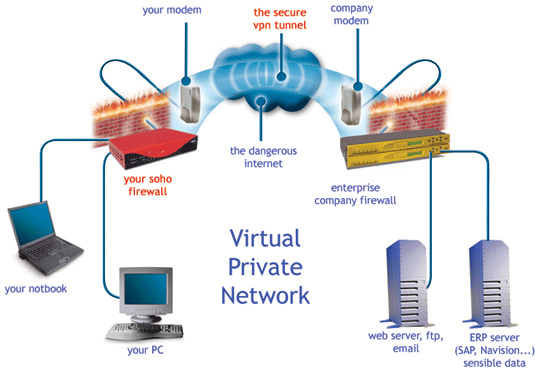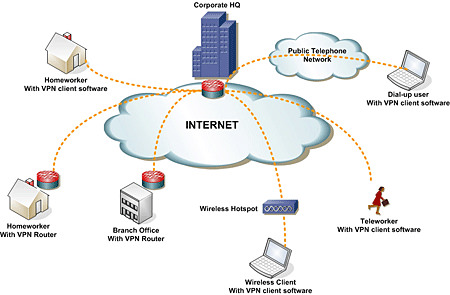The internet has evolved from a mere repository of information to a complex social and business platform. While this technological advancement has made life easier, it has also compromised our privacy.
As you navigate the web, various entities collect your personal data, such as advertisers, marketers, and analytics services, to better understand your preferences.
To illustrate the kind of personal information at risk, consider this: You’ve probably seen ads that say, “Chat with Alice. Join our network and connect with people in New York” (or your current location). Ever wondered how they knew where you were?
10 Best VPN Service Providers for 2023
Everything is being tracked nowadays, from your activities on the internet to your phone and computer. Each click,... Read more
How Your Data Is Collected and Used
Companies gather information like your browser type, platform, IP address, search history, browsing behavior, and even your geographical location. They use this data to create detailed profiles and leverage it for their benefit.

Moreover, the internet is rife with other risks such as viruses, malware, and spam, which can compromise your system. There are also individuals who engage in unauthorized access to steal your data. Safeguarding your online identity has become a business in itself.
Protecting Personal Data with VPN
While there are various security measures like antivirus software and firewalls to protect your system, these solutions fall short when it comes to preserving your personal data online.
Web browsers offer features like Private Browsing mode (Incognito for Chrome users) and Do Not Track, but these have limitations. A VPN serves as a robust solution to such privacy concerns, effectively safeguarding your sensitive information.
What is a Virtual Private Network (VPN)?
A Virtual Private Network, or VPN, establishes an encrypted ‘tunnel’ between your computer and the VPN server. This secure tunnel ensures that your data is protected when transmitted over the public internet, safeguarding it from unauthorized users and data breaches. While the underlying technology of VPNs may seem complex, it essentially serves to prevent unauthorized access to your data and conceals your IP address to protect your online identity.

Connecting to a VPN is as straightforward as logging into your email account. When you purchase a VPN package, the provider will supply you with a username and password, or in some cases, authentication files or certificates. You can then set up a VPN connection in your operating system, following the guidelines provided by the vendor, and log in using your credentials.
Alternatively, you may use a VPN client software, if provided by the vendor, to simplify the connection process after you’ve authenticated yourself.
Understanding VPN Security Levels
VPNs offer a variety of protocols, each with its own level of security and ease of use. Think of it like commuting to work: some people take the train, while others drive. Similarly, VPNs have different methods – known as protocols – for establishing secure tunnels.
These protocols vary in terms of platform compatibility, cost, and other features. Once you’ve decided to use a VPN, you’ll need to choose the specific VPN technology (protocol) that best suits your needs.
1. PPTP
Point-to-Point Tunneling Protocol (PPTP) is the most commonly used protocol. It offers relatively weak 128-bit encryption but is faster due to lower encryption overhead. PPTP is compatible with a wide range of platforms, including Windows, Mac OS X, iOS, Android, Linux, and DD-WRT routers, and doesn’t require any additional software.

PPTP is user-friendly, easily deployable, and works well with Dedicated IPs. It’s generally the most affordable protocol and is suitable for users who prioritize ease of use over high-level security.
Reasons to Choose PPTP: Wide platform support, user-friendly, and excellent mobile device compatibility.
Reasons to Avoid PPTP: Lower encryption levels result in reduced security, lack of support for alternate VPN ports, and easier to detect and block.
2. L2TP/IPSec
Layer Two Tunneling Protocol (L2TP) uses Internet Protocol Security (IPSec) for data encryption. It offers high 128-bit or 256-bit encryption and is compatible with Windows, macOS, Linux, iOS, and Android.

L2TP/IPSec requires no additional software and is compatible with Dedicated IPs. It offers better security than PPTP and is ideal for those seeking higher security levels.
Reasons to Choose L2TP/IPSec: High security, better than PPTP.
Reasons to Avoid L2TP/IPSec: No support for alternate VPN ports.
3. OpenVPN
OpenVPN is the most secure VPN protocol and is effective even in places like schools and offices where other protocols are blocked. It offers robust 256-bit encryption and is generally the most expensive protocol option.

OpenVPN requires its client software to be installed on your system. It is compatible with Dedicated IPs and operates on multiple ports, making it difficult to detect and block. It is the best choice for advanced users seeking high levels of anonymity and security.
Reasons to Choose OpenVPN: High security, works where other protocols are blocked, support for alternate VPN ports.
Reasons to Avoid OpenVPN: Requires software installation, may be challenging to set up on iOS and Android in some cases.
Conclusion
VPNs serve as an effective tool for safeguarding your sensitive data from unauthorized access. By encrypting your data, you achieve a higher level of anonymity and security, giving your information the protection it deserves.
For more insights, check out our other security-related articles.

